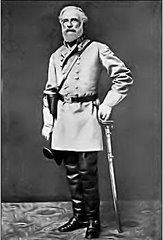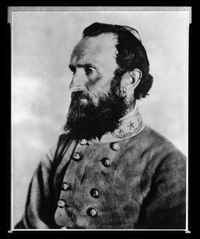Forgive me for taking a while to get back on these posts. I have been busy with school, work, trying to keep the house clean, and all that good stuff. But nonetheless, I will try to cover my thoughts on the sacraments here.
When a couple get married, there are certain signs that remind them of their covenant in marriage. Some signs are created by the couple. These may be bound by certain regulations of morality or society, or it could be completely up to the couple. But there are some signs that are generally universal. The wedding ring is perhaps the one that sticks out the most. It reminds the husband and the wife of their unity. Not just this, but it shows all others that they are married. The wedding ring is like their identity together. It shows that they are one. After this, there are certain signs they do to constantly remind themselves of their covenant. Perhaps the one that would strike the most is the sexual union of the couple.
This is similar to covenants made in the Bible. There is always a five-step covenant, and the signs of the covenant stick out the most. They are the faces of the covenant. When God made Adam, He spoke out the existence of the dust of which would become Adam, and took hold of the dust. Then God took the dust and separated it from the rest of dust. After this God spoke to Adam telling him of his duties to keep and protect the Garden. Then God told Adam not to eat of the Tree of the Knowledge of Good and Evil. God also showed Adam that there is a Tree of Life to eat from. Finally God prepared Adam for the future by giving him a bride, Eve.
So the five-step pattern goes something like this:
God takes hold.
God separates in order to make something new.
God speaks to the new creation.
God gives signs and seals of the covenant.
God prepares for the future.
So when God forms the first marriage covenant, it should look similar.
God took hold of Adam causing him to go into a deep sleep.
God separated Adam's rib from the rest of his body, in order to make something new.
God speaks to Adam and Eve, now telling them their respective roles with each other.
God created Eve as woman, showing that they are two but yet one.
God prepares for the future by allowing them to reproduce and glorify God.
When man sinned, God still offered covenants to His people, perhaps even in a greater sense. Now, God must deal with His special grace to His people. The signs of the covenant deal with God promising to remember His grace to His people, and His people faithfully trusting in God's promises. We see this in the doctrine of death and resurrection. The doctrine was not non-existent before the Fall, but it existed in a much simpler sort of way. Notice how God takes hold of His people and separates them in order to make something new. When Adam slept, he must have been dead asleep in order for God to take a rib out of his body! He basically died and rose again now with something even better - a companion. Now this death and resurrection involves real pain, and even the real death and resurrection of Jesus for our sins.
After the Fall, God continued to show covenants with His people as a reminder of His promise to send a Son, Jesus. God does this with Noah. God took hold of Noah. God separated Noah and his family from the world in order to make something new (the new world). The world died, but through this death arose Noah and his family to begin a new world. God spoke to Noah telling him of his duties to punish wrongdoers and to be fruitful and multiply. God gave Noah a sign of His covenant for both God and man to remember - the rainbow. Finally, God prepares for the future in promising never to flood the earth.
We can see this pattern with the Abrahamic covenant, and the Davidic covenant. But how does God's covenants work now when Jesus has already come?
God does not have to give us animals to kill. Jesus' blood has already been poured. God does not have to give us covenant after covenant, or play remnant favoritism. Now God's covenant is offered for all of mankind. But at the same time, He does ask for us to remember our covenant with God. He does ask that we remember our identity as God's people.
In the Old Testament, God used circumcision as the identity of God's people. But now God offers Baptism to God's people. Circumcision was given when the child was just eight days old. So by the same token, Baptism is offered to those who are born into a Christian home, and to those who come from a non-Christian home and are converted to the Faith sometime in their life. After Baptism, members of God's covenant people may take part in His table to remind them of God's grace. When God sees His supper being done, He dwells amongst His people and remembers His covenant with His people. Because Jesus has come, we may now be in Heaven, and in a sense that is where we are when we partake in the Lord's Supper.
So the sacraments are perhaps the most influential part of our life. They remind us of God's grace. Baptism is our identity. The Lord's Supper is a constant reminder of God's grace, and it strengthens and renews us. The Last Supper became like the first supper for the new Covenant - the Covenant of Grace. We should not exclude children from the Table, because after all, they are God's children. Children can come to God and have a personal relationship with God, and it does not have to be through us. At the same time, through the faith of the child's parents, the child is connected with the covenant. The child's Baptism reminds him of his identity, and the Lord's Supper constantly strengthens the child. In a real sense, the Lord's Supper is the most important meal of each week.
So we should not reject the child's faith. In Scripture, we see David speak of his faith since his infancy, even since he was in his mother's womb (Psalm 22: 9-11). John the Baptist knew God from infancy as well. Furthermore, children have identities when they are born. American-born children are simply born American's. How much more should a child's identity be in God, if they are born in a Christian home? How much more should be reminded of this identity through the Lord's Supper, even from infancy? After all, Jesus said that we must think as the children to enter the Kingdom of Heaven. Why should we not give our children the joy of Christ's resurrection for them?!
So I encourage all of you to be joyful whenever you do the Lord's Supper, and if you are Baptized, to treat it as the sign and seal of your Christian identity. At the Lord's Supper, treat it as the best and most important meal of the week. Get a big piece of bread!! Remember God's grace. God will remember His covenant with you. And for all children, be joyful that God's covenant of grace extends to you, directly, not through your parents, nor only to your parents. It is for you!
And I preach to myself as much as anyone here!
What do you think?
God bless His church.
February 19, 2008
Ryan Hampton
Subscribe to:
Post Comments (Atom)










No comments:
Post a Comment